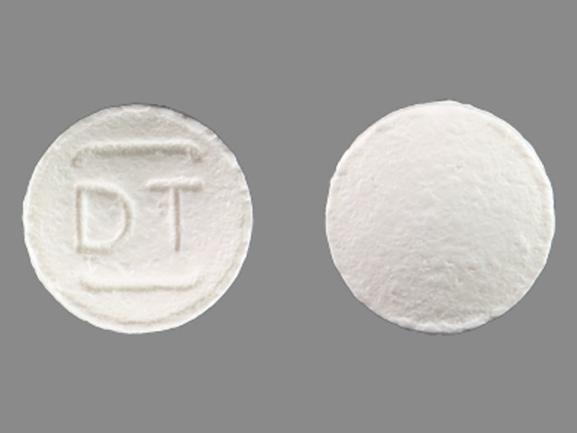Detrol Disease Interactions
There are 7 disease interactions with Detrol (tolterodine).
- Angle-closure glaucoma
- GI/urinary obstruction
- CNS
- Hepatic dysfunction
- Myasthenia gravis
- QT prolongation
- Renal dysfunction
Tolterodine (applies to Detrol) angle-closure glaucoma
Major Potential Hazard, High plausibility. Applicable conditions: Glaucoma/Intraocular Hypertension
The use of tolterodine is contraindicated in patients with uncontrolled angle-closure (narrow angle) glaucoma. Tolterodine exerts anticholinergic activity and can result in increased intraocular pressure and loss of accommodation.
References
- "Product Information. Detrol (tolterodine)." Pharmacia and Upjohn PROD (2001):
Tolterodine (applies to Detrol) GI/urinary obstruction
Major Potential Hazard, High plausibility. Applicable conditions: Urinary Retention, Gastrointestinal Obstruction
The use of tolterodine is contraindicated in patients with GI obstruction, ileus, or obstructive uropathy. Tolterodine exerts anticholinergic activity by competitive antagonism of muscarinic receptors.
References
- "Product Information. Detrol (tolterodine)." Pharmacia and Upjohn PROD (2001):
Tolterodine (applies to Detrol) CNS
Moderate Potential Hazard, Moderate plausibility. Applicable conditions: Dementia, CNS Disorder
Tolterodine is associated with anticholinergic central nervous system (CNS) effects. If a patient experiences anticholinergic CNS effects, dose reduction or drug discontinuation should be considered. Tolterodine should be used with caution in patients with Parkinson's disease and in patients with preexisting dementia treated with cholinesterase inhibitors due to the risk of aggravation of symptoms.
References
- "Product Information. Detrol (tolterodine)." Pharmacia and Upjohn PROD (2001):
Tolterodine (applies to Detrol) hepatic dysfunction
Moderate Potential Hazard, High plausibility. Applicable conditions: Liver Disease
Tolterodine undergoes biotransformation in the liver of extensive metabolizers to an active metabolite. Poor metabolizers have a greater concentration of active parent and less active metabolite, however the net activity of tolterodine is expected to be the same. The pharmacokinetic disposition of tolterodine can be significantly altered in patients with hepatic dysfunction. Therapy with tolterodine should be administered cautiously in patients with severe hepatic impairment and dosage should be reduced to no greater than 1 mg twice daily.
References
- "Product Information. Detrol (tolterodine)." Pharmacia and Upjohn PROD (2001):
Tolterodine (applies to Detrol) myasthenia gravis
Moderate Potential Hazard, Moderate plausibility.
Tolterodine acts as a competitive antagonist of acetylcholine at postganglionic muscarinic receptors. Caution is recommended when using this agent in patients with myasthenia gravis, a disease characterized by decreased cholinergic activity at the neuromuscular junction.
References
- "Product Information. Detrol (tolterodine)." Pharmacia and Upjohn PROD (2001):
Tolterodine (applies to Detrol) QT prolongation
Moderate Potential Hazard, Moderate plausibility. Applicable conditions: Long QT Syndrome
Tolterodine has been associated with QT prolongation. The effect on QT interval correlates with plasma concentration of tolterodine. Caution is recommended when prescribing this agent to patients with a known history of QT prolongation or to patients who are taking Class IA (e.g., quinidine, procainamide) or Class III (e.g., amiodarone, sotalol) antiarrhythmic medications.
References
- "Product Information. Detrol (tolterodine)." Pharmacia and Upjohn PROD (2001):
Tolterodine (applies to Detrol) renal dysfunction
Moderate Potential Hazard, Low plausibility.
The renal elimination of tolterodine and active metabolite is limited and a prolonged half-life is not anticipated in patients with renal impairment. However, the pharmacokinetic disposition of tolterodine has not been evaluated in patients with renal impairment and it is recommended that tolterodine be administered cautiously in patients with compromised renal function.
References
- "Product Information. Detrol (tolterodine)." Pharmacia and Upjohn PROD (2001):
Detrol drug interactions
There are 350 drug interactions with Detrol (tolterodine).
Detrol alcohol/food interactions
There is 1 alcohol/food interaction with Detrol (tolterodine).
More about Detrol (tolterodine)
- Detrol consumer information
- Check interactions
- Compare alternatives
- Pricing & coupons
- Reviews (18)
- Drug images
- Side effects
- Dosage information
- During pregnancy
- Generic availability
- Drug class: urinary antispasmodics
- Breastfeeding
- En español
Related treatment guides
Drug Interaction Classification
| Highly clinically significant. Avoid combinations; the risk of the interaction outweighs the benefit. | |
| Moderately clinically significant. Usually avoid combinations; use it only under special circumstances. | |
| Minimally clinically significant. Minimize risk; assess risk and consider an alternative drug, take steps to circumvent the interaction risk and/or institute a monitoring plan. | |
| No interaction information available. |
Further information
Always consult your healthcare provider to ensure the information displayed on this page applies to your personal circumstances.


